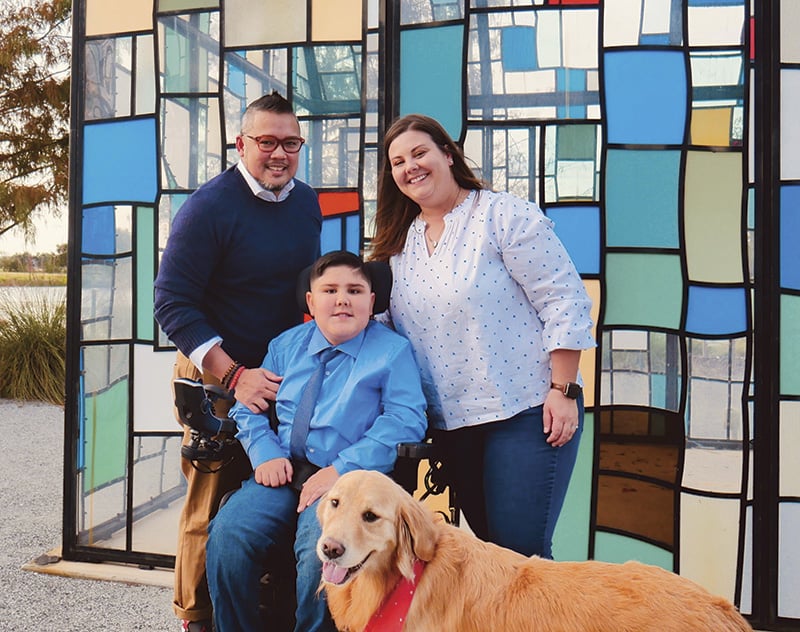Explore The Difference Between Delta 8, Delta 9, and THC
Is Delta-8 “Marijuana-lite?”
Since the passage of the 2018 federal Farm Bill, legalizing widespread hemp farming and distribution in the U.S., the market for a hemp-derived product, Delta-8 THC — sometimes called ‘marijuana light’ — has exploded, experts say.
The exact number of consumers using these products, however, goes untracked, they say, because Delta-8 products fall into a legal grey area, unregulated and widely available in Florida and many other states in a dizzying array of offerings: cannabis-laced teas, spiked gummy bears, tinctures and oils, beauty products and vaping devices.
“For working-class folks without a medical marijuana card, they can easily walk into a Circle K, buy Delta-8 and get a buzz,” said Jeffrey Sharkey, Ph.D., a Florida-based industry consultant who founded the Marijuana Business Association in Tallahassee.
“It’s an attractive product, especially for vaping, it’s legal, and it’s not as potent as Delta-9 THC, or THC, the psychoactive ingredient that defines marijuana and gives users a ‘high.’”
Marijuana, Hemp and Cannabis
Essentially, marijuana and hemp are part of the same cannabis plant. Still, THC is the dominant compound in cannabinoids, the term collectively used for all the plant’s natural compounds, along with CBD (cannabidiol), and the one highly regulated by state and federal officials for illegal abuse.
Delta-8, in comparison, because of the legal loophole, can be sold widely, as long as its THC content does not exceed 0.3 percent. And while Delta-8 is considered the fastest-growing segment of the hemp market, scientists say, it’s only one of the plant’s 100 or more compounds — primarily found in trace amounts — which savvy entrepreneurs can tease out and produce for sale online or in many retail stores.
Despite all the media attention, “Delta-8 is the tip of the iceberg,” said Gillian Schauer, Ph.D., MPH, executive director of the Seattle-based Cannabis Regulators Association, nonprofit advising policy makers on the best practices for safeguarding public health. She said other compounds now under development that require chemical synthesizing and can elude regulatory control, including Delta-10 and yeast-derived THC, among others.
“It’s a bit of a whack-a-mole game,” Dr. Schauer suggested. Different analogs and molecules are bubbling up in a parallel marketplace to the legal and regulated one, with policymakers several steps behind.
“It’s a parallel marketplace with psychotropic or impairing products but requires lower barriers to entry (for consumers) and far less regulatory vigor to protect public health,” she said.
“Producers can get by the current 0.3 percent ‘dry’ weight THC restriction,” Dr. Schauer said, “through sophisticated extraction techniques that enable them to produce far higher amounts of this psychoactive ingredient than is legally permitted.”
A report on lab-tested Delta-8 products by the U.S. Cannabis Council industry advocacy group confirmed that suspicion. The council found that of the 16 products under scrutiny, a few had THC concentrations ten times the legal limit. Other products contained additives, such as lead and chromium, and seven-to-ten unknown compounds never tested for human use.
“Consumers don’t know what they’re buying and think they’re getting just hemp,” she said, not an impairing, potentially mind-altering product. “It’s a major consumer safety issue,” which she blames on regulatory failures at the federal level that has left states in a challenging position.
Florida House Representative Andrew Learned (D-District 57) also expressed concern about the rapid growth in this alternative marketplace. In the 19 states permitting recreational use of marijuana in adults over age 21, he said, typically, there’s less of a problem than in states like Florida.
“The reason Delta-8 is so popular here is not that it’s better than traditional cannabis,” he said, “but because people have less trouble getting it. The problem is you can buy it anywhere, but so can my 9-year-old kid.”
Currently, Florida is one of 36 states permitting the medicinal use of marijuana, primarily for symptom relief in cancer and other diseases. But there are multiple layers of expense associated with procuring marijuana this way, compared with simply going to a smoke shop to buy a pack of spiked gummy bears, which also “gets you high,” Rep. Learned said.
Not only must consumers meet specific medical criteria and pay a qualifying doctor for a prescription, but he also said they must pay $75 for a medical marijuana card and buy products from a state-regulated dispensary.
“Even in states like Colorado,” where both recreational and medicinal marijuana use is allowed, he said, “there are always people trying to get around state impact fees and buy cannabis in a far cheaper way.”
Although there’s been a recent national effort to clamp down on the proliferation of Delta-8 products, efforts in the Florida legislature, so far, have failed, Rep. Learned said. He said that a few “nefarious sellers” continue to market to college-age kids and have successfully blocked regulatory reform.
In May, however, for the first time, the Food and Drug Administration issued warning letters to five companies that sell products containing Delta 8 in ways that the agency said violate the federal Food, Drug and Cosmetic Act.
The FDA showed the action was warranted because of an uptick in adverse events reported to the agency and the nation’s poison control centers in the past few years; unproven health claims of benefit; marketing tactics appealing to children; and manufacturing processes that carry potential health risks.
In a press release, the agency also stressed that no Delta-8 THC products had been evaluated or approved by the FDA for safe use.
To date, the agency has approved only two THC-derived drugs, one for treating chemotherapy-associated nausea, and the other associated with weight loss in AIDS patients. A third drug, a cannabis-derived CBD product, won approval several years ago for treating seizures in several rare forms of epilepsy.
Because Delta-8 flourishes in an unregulated market, there’s still no clear sense of what the harms may be, said John Kagia, chief knowledge officer for New Frontier, a Washington D.C.-based research and analysis company. He said the widely reported 2019 national outbreak in lung injuries associated with vaping e-cigarettes happened because of the additive, vitamin E, rather than the products’ THC or CBD content. But the FDA does not yet seem to agree, strengthening a warning to consumers to stop using vaping products containing any of this psychoactive ingredient.
That seems to have had little impact on the Orlando market so far, where vaping appears the most popular way to use Delta-8, at least according to several store owners who sell these products.
Delta-8 “gets you high, and people love it,” said the owner of the Dank Orlando City Smoke Shop in downtown Orlando, preferring his name not to be used. “And, yes, it sells well.”
And, despite regulators’ concerns, he said, the shop voluntarily restricts access to these products by age, placing products up high so children can’t reach or steal them.
Hernan Sarria, the owner of MOTO Advising in Central Florida, also said most consumers prefer Delta-8 for a vaping high, its oil tinctures providing a discrete and easy way to smoke.
Personally, Sarria said he prefers using only finished cannabis products to smoke after they’ve been tested for heavy metals and pesticide residue, which is not required, but which some companies do. “The cleaner, the better,” he said, encouraging others to buy products tested first by reputable labs.
As to age restrictions, he demurred. “That’s up to the person who sells it.”
A 2022 report by New Frontier, a Washington D.C.-based research and analysis firm, estimates that 52 million adults in the U.S. will consume cannabis at least once across both legal and unregulated markets this year. The company also projects some 71 million consumers will use these products by 2030 amid an ongoing sea change in state regulatory laws.




